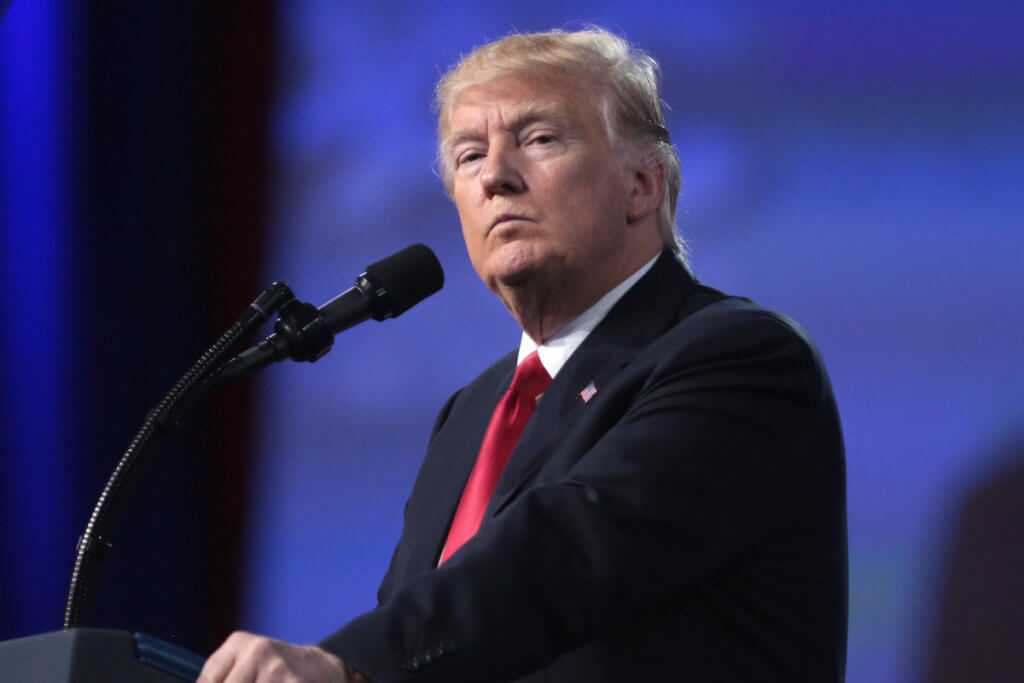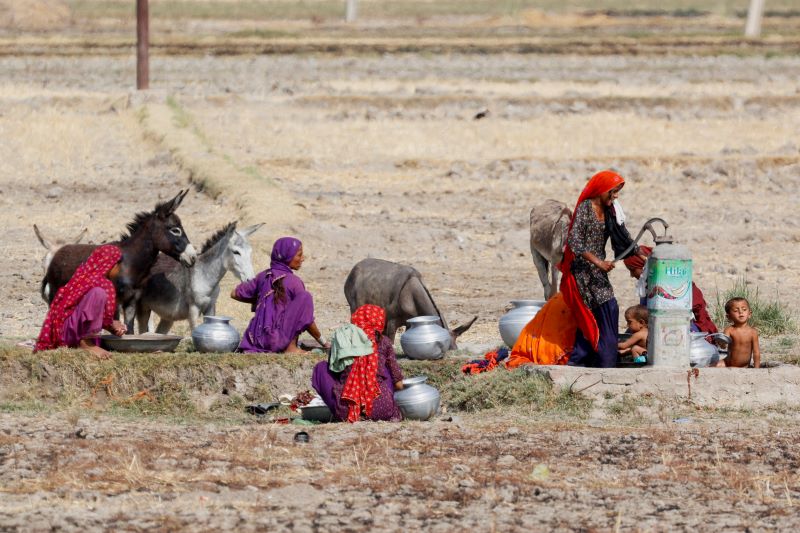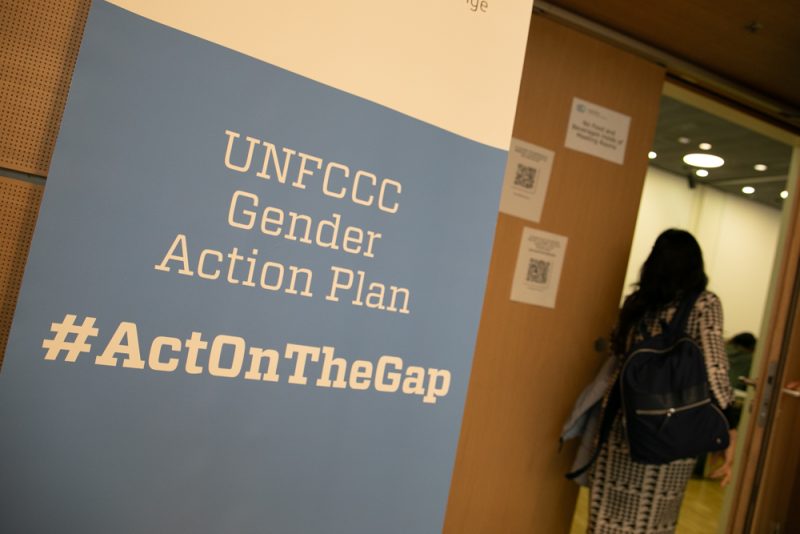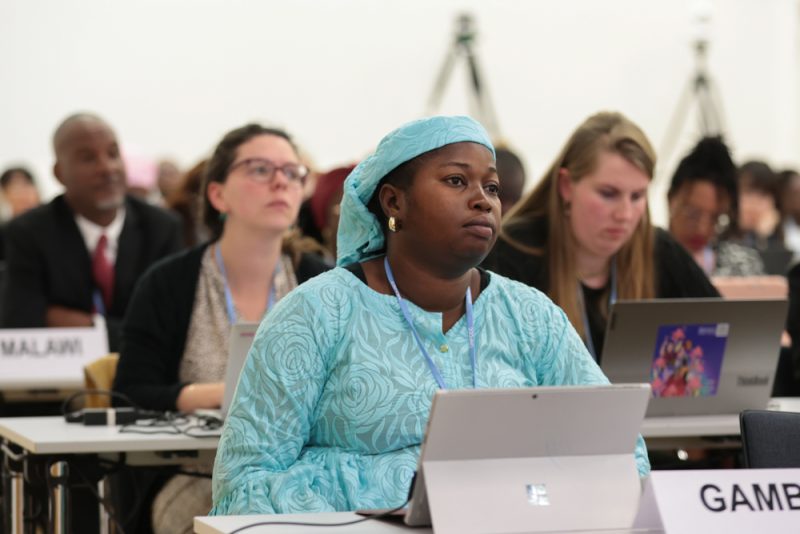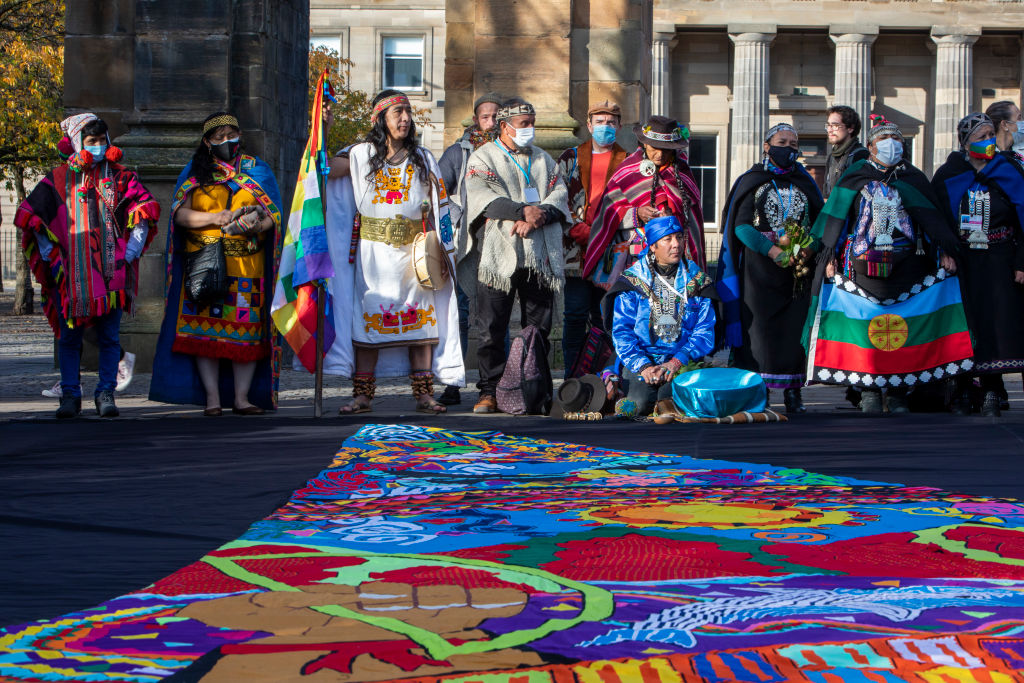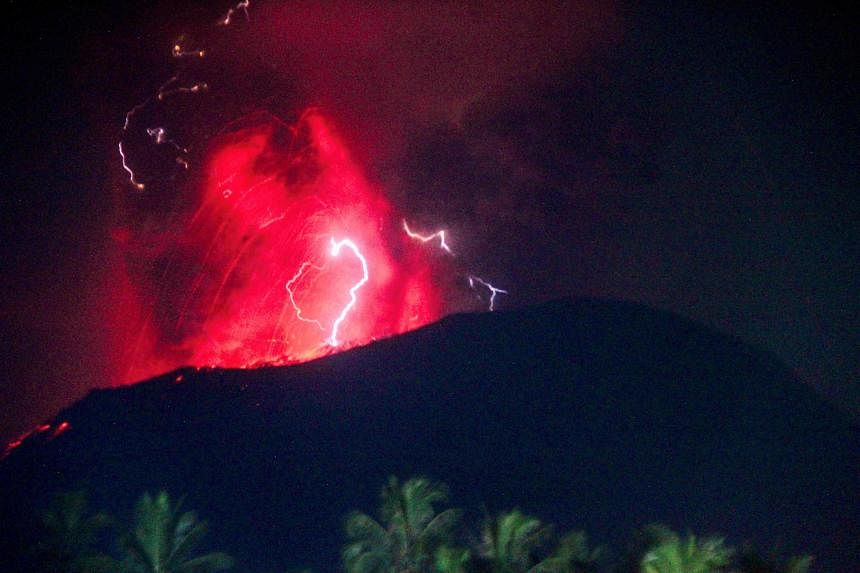June 28, 2024

Israeli soldiers take security measures on the streets as Jewish settlers organize a provocative tour of the Old City under the protection of Israeli soldiers in the Hebron, West Bank on May 25, 2024. [Wisam Hashlamoun – Anadolu Agency]
Canada today announced new sanctions targeting Israeli settlers for “extremist violence” against Palestinian civilians in the occupied West Bank.
This follows the first-ever sanctions against settlers by Canada last month, coordinated with Britain, France, the European Union and the United States.
The latest round of sanctions includes seven Israeli extremists and five organisations accused of facilitating, supporting, or financially contributing to acts of violence by Israeli extremist settlers against Palestinian civilians and their property.
Foreign Minister, Melanie Joly, said: “We remain deeply concerned by extremist settler violence in the West Bank and condemn such acts, not only for the significant impact they have on Palestinian lives, but also for the corrosive impact they have on prospects for lasting peace.”
“We call on authorities to ensure the protection of civilians and hold perpetrators of such violence accountable.”
Attacks by extremist Israeli settlers – a long-standing source of tension and conflict in the region – undermine the human rights of Palestinians, prospects for a two-state solution and pose significant risks to regional security.
According to the Canadian Ministry of Foreign Affairs, the seven Israeli extremists include Ben Zion Gopstein, the founder and leader of the right-wing group Lehava, Elisha Yered, who has justified killing Palestinians on religious grounds, and Shalom Zicherman, who the US State Department this year said had assaulted Israeli activists and their vehicles in the West Bank.
Other radical settler activists listed are Daniella Weiss, who has called for Palestinians to be resettled out of Gaza to make way for Jewish-only settlement, Einan Ben-Nir, Amram Tanjil, Ely Federman and Meir Mordechai Ettinger. The five entities on which the sanctions were also imposed were named as Amana, Hilltop Youth, Lehava, Moshe’s Farm and Zvi’s Farm.
Earlier this year, the UK imposed sanctions on four Israeli nationals saying they were extremist settlers who had violently attacked Palestinians in the Israeli-occupied West Bank. The US has also taken measures against settlers but questions have been asked over the effectiveness after Washington urged banks not to freeze accounts of the sanctioned settlers.
Israel approves plan to legalise West Bank settlement outposts, sanction Palestinian Authority
June 28, 2024

Israeli Prime Minister Benjamin Netanyahu attends the cabinet meeting in Jerusalem on January 29, 2023. [GPO – Anadolu Agency]
The Israeli Cabinet yesterday approved measures proposed by far-right Finance Minister, Bezalel Smotrich, which aim to “legalise” settlement outposts in the West Bank and impose sanctions on the Palestinian Authority (PA).
According to Israel’s Kan public broadcaster, the plan includes legalising five settlement outposts in the West Bank, issuing tenders for thousands of new housing units in settlements, and implementing measures against the PA.
These measures include revoking permits and benefits for Palestinian officials, restricting their movement and preventing senior officials from leaving the country.
Moreover, the plan aims to remove executive powers from the PA in the southern West Bank and enforce laws against unauthorised construction.
Smotrich, in his statement, said the move came “in light of Palestinian Authority action at the International Criminal Court, International Court of Justice, the UN, the pending arrest warrants against the country’s leaders and its push for unilateral recognition of a Palestinian State.”
Additionally, his proposal addresses the recognition and regularisation of five settlement outposts in response to the official recognition of Palestine as a State by Spain, Norway, Ireland, Slovenia and Armenia, following 7 October.
Smotrich added, “The Security Cabinet authorised one outpost for every country that unilaterally recognised Palestine as a state in the last month.”
Last week, Armenia said it recognised the State of Palestine, the latest country to do so during the war in Gaza, where Israel has killed more than 37,400 Palestinians since the 7 October, 2023 Hamas incursion that claimed 1,200 lives.
However, since then, it has been revealed by Haaretz that helicopters and tanks of the Israeli army had, in fact, killed many of the 1,139 soldiers and civilians claimed by Israel to have been killed by the Palestinian Resistance.
Spain, Norway, Ireland and Slovenia have all recently recognised the Palestinian State.
Under the 1995 Oslo Accords between Israel and the Palestinian Authority, the West Bank, including East Jerusalem, was divided into three portions – Area A, B, and C – with area C under administrative and security control of Israel until a final status agreement is reached with the Palestinians.
Israel is accused of genocide at the International Court of Justice (ICJ). An interim ruling in January ordered Tel Aviv to stop genocidal acts and take measures to guarantee that humanitarian assistance is provided to civilians in Gaza.
Palestinian official rejects Israel Minister's move on West Bank settlements
June 28, 2024

Bezalel Smotrich Israeli Finance Minister. [AHMAD GHARABLI/AFP/Getty Images]
A senior Palestinian official rejected, on Friday, a move by Israel’s Finance Minister intended to promote new Jewish settlements in the Occupied West Bank, saying it was aimed at pursuing a “war of genocide” against Palestinians, Reuters reports.
Finance Minister, Bezalel Smotrich, said on Thursday the Israeli government would also take punitive steps against the Palestinian Authority in response to Palestinian moves against Israel internationally.
Asked about Smotrich’s statement, which was not confirmed by the government, Wasel Abu Youssef, a member of the Executive Committee of the Palestine Liberation Organisation (PLO), said the settlements were “illegal colonies that violate all international resolutions”.
“The decisions by the Occupation government aim to pursue the war of genocide against our Palestinian people,” he told Reuters.
He said the PLO and the Palestinian Authority would continue to press for Israel to be taken before international courts and punished for “crimes against our people, and in particular in the Gaza Strip”.
Israel has rejected accusations brought by South Africa at the UN’s top Court that its military operation in Gaza is a state-led genocide campaign against Palestinians.
READ: Report: US officials call for imposing sanctions on Israel minister
Israel launched its Gaza offensive in retaliation for the Hamas-led attack on southern Israel last 7 October, in which about 1,200 people were killed and over 250 taken hostage, according to Israeli tallies. The Gaza Health Ministry says over 37,000 people have been killed in Israel’s offensive.
However, since then, it has been revealed by Haaretz that helicopters and tanks of the Israeli army had, in fact, killed many of the 1,139 soldiers and civilians claimed by Israel to have been killed by the Palestinian Resistance.
Smotrich, who heads a pro-settler party, said the government supported his proposal. Prime Minister Benjamin Netanyahu’s office, which usually announces cabinet-level decisions, issued no statement and could not be reached for immediate comment.
Steps which Smotrich said he was advancing included revoking “various approvals and benefits” for senior officials in the Palestinian Authority, approving new settlements and retroactively sanctioning some Jewish settlements.
The Palestinian Authority exercises limited self-rule under 1990s interim peace deals in the West Bank, which Israel captured in the 1967 Middle East war.
Palestinians and most of the international community regard Jewish settlements in the West Bank and East Jerusalem as illegal. Israel disputes this, citing the Jewish people’s historical, biblical and political links to the area as well as security considerations.
READ: Israel to promote settlement in the West Bank, Smotrich says






